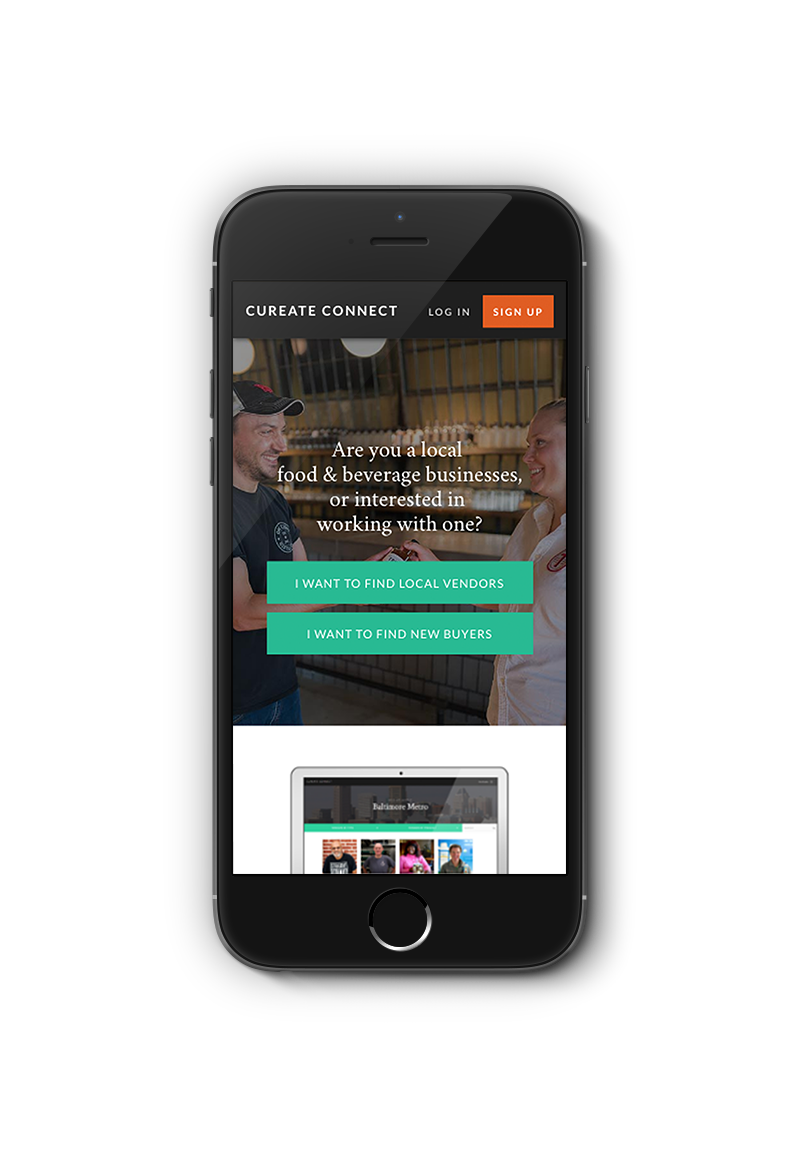Kim Bryden’s big dream is to help with the “redistribution of wealth in America.” But that, in and of itself, is not a business.
So Bryden has decided to operationalize one piece of the big dream by helping small food and beverage businesses make connections with large buyers like corporations or universities or stores. Since 2014, when she launched Cureate, Bryden has been doing this herself, by hand, as a kind of consultant.
Now she’s looking to scale her own capacity.
This is where Cureate Connect comes in — an online platform where small businesses can display their wares on a personal page and large buyers can easily find great local companies to cater that upcoming staff meeting (for example). It’s like a “megaphone for small businesses,” Bryden said. Cureate Connect has been in beta for the past six months, and officially launches on Jan. 23.

See, given her background in food and bev, Bryden knows that big corporations want to buy (at least some things) local. It’s about brand — it’s what the ever-powerful millennial customer demands. Imagine a university that features local ice cream in its cafeteria, an apartment building that serves local coffee in its lobby and your employer ordering catered lunch from a new food delivery startup. Sounds trendy, right? Exactly.
But there are some hurdles that these big buyers face — chief among them is that those with the purchasing power might not know where to look for local options and don’t have time to really dig, or they might worry that it’ll be too expensive.
Bryden thinks some transparency can only help on both these counts.
Thus, buyers on Cureate Connect can filter by a range of criteria to find what they need and then message the business in question, or post a request for proposals if they can’t find it. This then allows the various small businesses to essentially bid of the job. Cureate Connect is free for small businesses, and works via a $64.99/month subscription for buyers. Bryden said she went this route because she wanted the platform to be affordable for both the individual wedding planner and the big university. She also wanted to encourage buyers to use and engage with the platform regularly.

There’s another element to Cureate Connect that’s, well, a little different. In addition to helping small businesses connect with large buyers in order to cater events or get a wholesale order, Bryden wants to connect these small companies to affordable brick and mortar spaces for short-term popups. The location of those brick-and-mortar spaces? The commercial floors of D.C.’s many new mixed-use buildings. According to Bryden, building managers are actually very receptive to letting local businesses take over a space that would otherwise be empty — having a trendy local business downstairs is “what gets them the residents they want” she said.
At launch, Cureate Connect is focused on food and beverage businesses in the Baltimore and D.C. metro areas (Bryden is based in D.C.). But Bryden does see the model expanding — both to other cities in the region (perhaps Philly and Richmond?) as well as into other product verticals. The platform currently has around 250 businesses onboarded — more than 50 percent of which are women-owned and 35 percent of which are owned by entrepreneurs of color.
Ultimately, Cureate Connect is all about helping small companies get the business they need to become bigger companies, and in doing so make money and hire employees. And in this sense it’s ultimately all about the redistribution of wealth in America, too.







